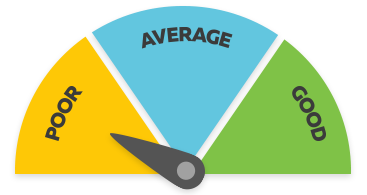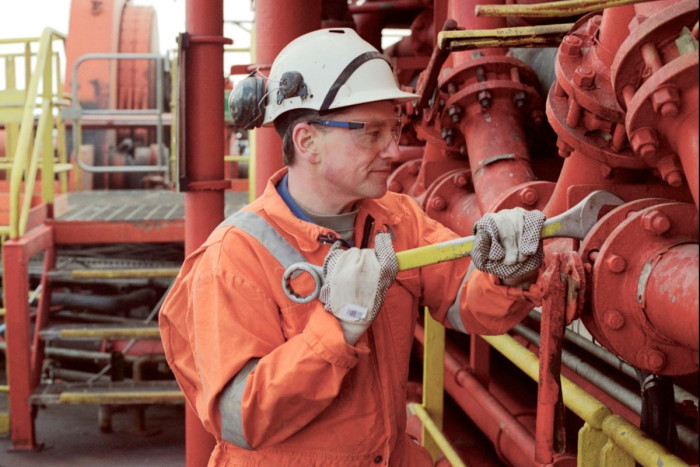Marine Engineer
Mataaro Kaipuke
Alternative titles for this job
Marine engineers operate, service and repair engines, and mechanical and electronic equipment on ships and boats.
Pay
New marine engineers usually earn
$65K-$80K per year
Experienced marine engineers usually earn
$80K-$184K per year
Source: Defence Careers, 2023
Job opportunities
Pay
Pay for marine engineers varies depending on their experience, qualifications, and the size and type of vessel they work on.
- New marine engineers usually earn between $65,000 and $80,000 a year.
- Marine engineers with more than five years' experience can earn between $80,000 and $184,000.
Source: careers.govt.nz research, 2023; and Defence Careers website, 2023.
(This information is a guide only. Find out more about the sources of our pay information)
What you will do
Marine engineers may do some or all of the following:
- diagnose engine and machinery problems, and carry out maintenance and repairs
- order and receive fuel and lubricating oils and spare parts
- perform specialised fabrication, maintenance and diagnostics or electrical-fitting tasks
- check, test and maintain automatic controls and alarm systems.
Marine engineers at sea may also:
- have charge of engines and mechanical, electrical and electronic equipment on board the ship
- keep ships moving at required speeds according to orders from the captain or computers on the bridge
- maintain services to electrical power, heating, ventilation, refrigeration, water and sewerage systems
- supervise other engineers and crew members, and be responsible for training them in routine and emergency duties.
Skills and knowledge
Marine engineers need to have knowledge of:
- mechanical engineering
- pneumatic and hydraulic machinery (operated with pressure caused by air or liquids)
- how to operate and fix electronic and electrical equipment
- safety regulations and procedures
- firefighting, first aid and survival skills
- home and foreign port regulations.
Working conditions
Marine engineers:
- usually work shifts and can be on call
- work on ships – often in engine rooms – in dry docks or at sea
- work in all weather conditions, and in conditions that can be hot and noisy
- may travel within New Zealand waters or overseas.
Entry requirements
To become a marine engineer, you need to have an appropriate Marine Engineer Class Certificate of Competency. This includes:
- at least 200 hours at sea
- engineering training approved by Maritime New Zealand
- a medical certificate
- an eyesight test
- being able to prove you are of good character, including a New Zealand Police Vet Check.
Certificates of Competency start at Marine Engineer Class 6 (Level 4) for the smallest vessels.
Classes 6, 5 and 4 are for work within New Zealand.
Classes 3, 2 and 1 are for international work.
If you have a National Certificate in Mechanical Engineering (Level 4) or equivalent, this can reduce your qualifying time to become a Marine Engineer Class 3, 4 or 5.
The Royal New Zealand Navy also offers training for marine engineers.
Secondary education
No specific secondary education is required for this job, but maths, physics and technology to at least NCEA Level 2 are useful.
Additional requirements for specialist roles:
To become an electro-technical officer, you need:
- New Zealand Diploma in Marine Electro-Technology (Level 6)
- at least 30 months of sea service.
You can then apply for the Maritime New Zealand Electro-technical Officer Certificate (Level 6).
Personal requirements
Marine engineers need to be:
- responsible
- practical, methodical and adaptable
- accurate, with an eye for detail
- excellent problem-solvers
- confident decision-makers who remain calm in emergencies
- good communicators
- good at maths and physics.
A lot of this job is managing your overhauls so things don’t break down, and doing checks so you catch things before they break down.
John Mapp
Marine Engineer
Useful experience
Useful experience for marine engineers includes:
- other engineering work
- work with pneumatic or hydraulic machinery (operated with air or liquid pressure)
- welding, electrical or electronics work
- time at sea.
Physical requirements
Marine engineers need:
- to be reasonably fit and healthy because they may have to work at heights or in confined spaces, and lift heavy objects
- good eyesight (with or without corrective lenses)
- normal colour vision.
Find out more about training
- Aviation and Marine Engineers Association (AMEA)
- (09) 358 0050 - union@amea.co.nz - www.amea.co.nz
- Maritime New Zealand
- 0508 22 55 22 - enquiries@maritimenz.govt.nz - www.maritimenz.govt.nz
What are the chances of getting a job?
Marine engineers are in low demand due to:
- reduced international trade in products such as coal, oil and logs
- weak growth in commercial fishing in New Zealand.
There are better chances for marine engineers on international cruise ships and superyachts due to an increase in passenger numbers.
According to the Census, 1,374 marine engineers worked in New Zealand in 2018.
Longer term outlook for marine engineers is positive
Marine engineers are predicted to be in demand in the longer term due to:
- high turnover due to long periods at sea, which creates demand for new staff
- the expected increases in international trade, and in cruise ship and superyacht voyages.
However, this role can be affected by economic conditions. A downturn in trade, fishing or leisure travel can lower demand for marine engineers.
Types of employers varied
Employers of marine engineers include:
- shore-based marine engineering companies
- fishing companies
- coastal shipping companies
- oil and gas industry companies
- cruise ship companies
- superyacht owners
- Royal New Zealand Navy.
Sources
- Bishara, M, 'Superyacht Sales Sail Ahead in 2015', 2 March 2016, CNN, (edition.cnn.com).
- Cabrera, N, '2017's Top 5 Shipping Trends', 23 January, 2017, (www.shiplilly.com).
- Cruise Lines International Association, '2017 Cruise Industry Outlook,' accessed March 2017, (www.cruising.org).
- Day, M, head of department – primary industries, maritime and adventure tourism, NMIT, Careers New Zealand interview, March 2017.
- New Zealand Fisheries Infosite website, accessed March 2017, (fs.fish.govt.nz).
- Ministry of Business, Innovation and Employment, '2006-2014 Occupation Data' (prepared for Careers New Zealand), 2015.
- Ministry of Transport, 'Transport and Trade - July 2015', July 2016, (www.transport.govt.nz).
- Sand, P, 'The Shipping Market In 2016 And Looking Forward', 3 January 2017, (www.bimco.org).
- Stats NZ, '2018 Census Data', 2019.
- Wall St Journal, 'Superyacht Trends', 12 December, 2015, (www.wsj.com).
- Westpac, 'Industry Insights: Fishing, Aquaculture and Seafood', 30 March, 2016, (www.westpac.co.nz).
(This information is a guide only. Find out more about the sources of our job opportunities information)
Progression and specialisations
Marine engineers can progress to work on larger and more complex vessels, move into engineering work in other industries, or move into roles such as ship's surveyor.
Marine engineers work in a range of settings including:
- fishing vessels ranging from small inshore fishing boats to large factory trawlers
- the merchant navy – commercial ships, including cargo ships, cruise liners and superyachts, but excluding fishing boats.
- in restricted waters, such as harbours, on harbour tugs and ferries, charter launches or small cargo ships.
Marine electro-technical officers maintain and repair all electrical and electronic equipment, systems, installations and machinery on board, including all communications and electronic navigation aids.
Last updated 18 December 2023


